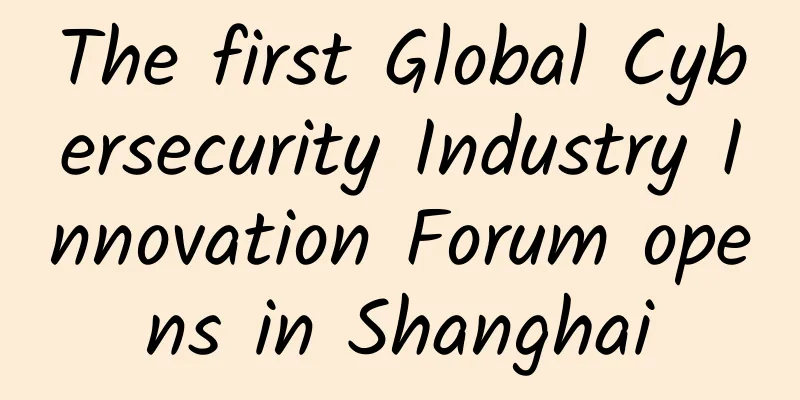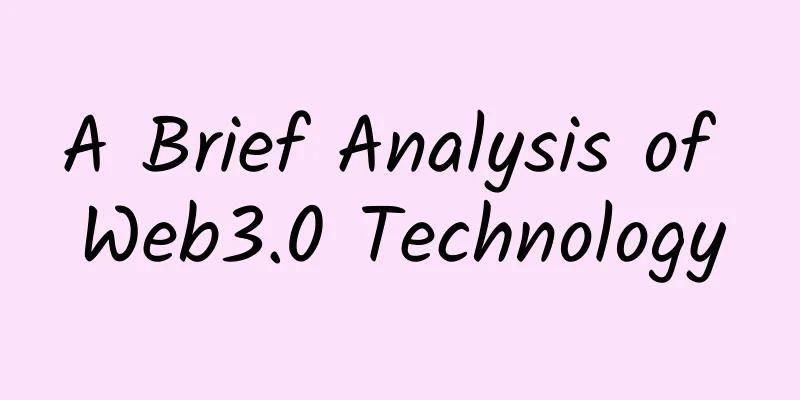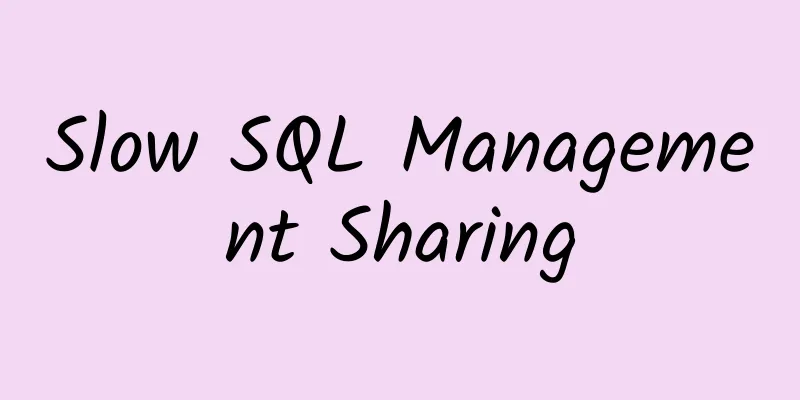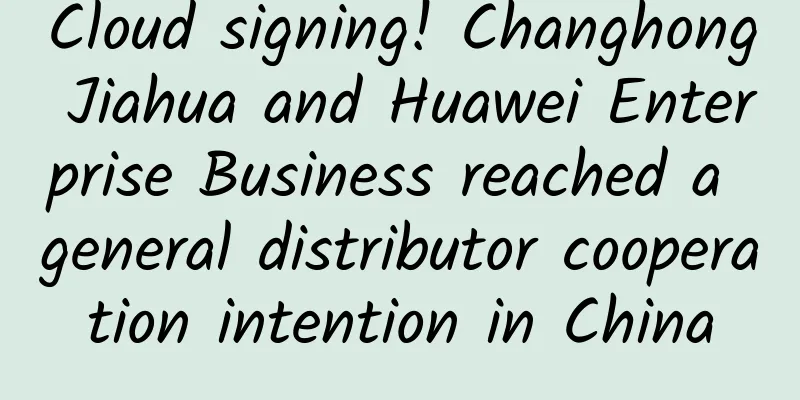The first Global Cybersecurity Industry Innovation Forum opens in Shanghai

|
On November 7, 2017, the first "Global Cybersecurity Industry Innovation Forum" with the theme of "Cybersecurity Innovation Driven" was grandly held at the Shanghai New Jinjiang Hotel. As one of the sub-forums of the 2017 Global City Informatization Forum, the forum brought together more than 300 heavyweight scholars in the field of cybersecurity at home and abroad, elites in the cybersecurity industry, researchers from well-known think tanks at home and abroad, and leaders of government decision-making departments to discuss the scientific path of innovative development of the cybersecurity industry, contribute wisdom and provide support for promoting innovative cooperation in the cybersecurity industry at home and abroad and the healthy development of my country's cybersecurity industry. The forum was jointly hosted by Shanghai Municipal Economic and Information Commission and Shanghai Academy of Social Sciences, and guided by the Ministry of Industry and Information Technology and Shanghai Municipal People's Government. Wang Zhen, Vice President of Shanghai Academy of Social Sciences and Director of the Institute of Information, presided over and announced the opening of the forum.
(Wang Zhen, Vice President of Shanghai Academy of Social Sciences and Director of the Institute of Information, presided over and announced the opening of the forum) Ma Li, Chairman of the China Internet Development Foundation, Yu Xinhui, Secretary of the Party Committee of the Shanghai Academy of Social Sciences, Zhang Ying, Chief Engineer of the Shanghai Municipal Economic and Information Commission, and Wang Zhiqin, Vice President of the China Academy of Information and Communications Technology, delivered opening speeches. Chairman Ma Li said that the China Internet Development Foundation has established the China Cybersecurity Special Fund with the fundamental purpose of "Let the fruits of Internet development benefit 1.3 billion Chinese people" proposed by General Secretary Xi Jinping, and has contributed to the cultivation of cybersecurity talents. Secretary Yu Xinhui believes that the cybersecurity situation is becoming increasingly severe, and the cybersecurity strategy has risen to national security. He thanked all leaders and experts and scholars for their enthusiastic participation. He hopes that this forum will become a platform for the gathering of cybersecurity ideas and the condensation of wisdom, and contribute wisdom to the development of my country's cybersecurity industry. Chief Engineer Zhang Ying introduced that Shanghai is an important region of my country's information industry. In the process of building a future-oriented smart city, Shanghai is making great efforts to lay out and provide industrial foundation and application advantages for the leapfrog development of the cybersecurity industry. Vice President Wang Zhiqin said that with the introduction of strategic planning and laws and regulations such as the Cybersecurity Law, the guiding ideology and theoretical basis of cybersecurity work have become more systematic. The China Academy of Information and Communications Technology is committed to policies, standards, basic research and support work in the field of cybersecurity, and actively contributes the power of think tanks to my country's cybersecurity industry and cybersecurity industry.
(Unveiling ceremony of Shanghai Cyber Security Industry Innovation Research Institute) At the meeting, the "Shanghai Cybersecurity Industry Innovation Research Institute" was officially unveiled under the guidance of the Shanghai Economic and Information Commission, initiated by Shanghai Zhongren Network Security Technology Co., Ltd., Shanghai Information Security Industry Association, and important research institutions and enterprises.
(Shen Changxiang, an academician of the Chinese Academy of Engineering, delivered a keynote speech) Academicians of the Chinese Academy of Engineering Shen Changxiang and Ni Guangnan, and Academician of the German National Academy of Sciences and Engineering Christoph Meiner gave keynote speeches at the forum. Academician Shen Changxiang spoke on the topic of "Building a Strong Cybersecurity Defense Line with Trusted Computing", pointing out that the increasingly severe international cyberspace situation requires China to build a cyberspace security active immune protection system based on national conditions and driven by innovation. my country is committed to innovating the trusted computing system and has now entered the era of trusted computing 3.0. Trusted computing has become a strategic core technology for defending national cyberspace sovereignty. It has been successfully applied on a large scale in national core systems and critical information infrastructure and has been listed as a national strategic and legal requirement. Building a cybersecurity system through trusted computing 3.0 requires that the system and source code must be "five cans" and "one has": knowable, programmable, reconfigurable, trustworthy, usable, and have independent intellectual property rights. Academician Ni Guangnan discussed the status of China's cybersecurity and the issue of the initiative in cyberspace competition. 38% of countries in the world have issued cybersecurity strategies, which shows the importance of cybersecurity. The Xu Yuyu case, ransomware and other events also fully reflect the urgency of the cybersecurity situation. Under the requirements of General Secretary Xi, building a cyber power requires striving for the initiative in cyberspace and using the results of our own research and development to master core technologies such as operating systems. Cybersecurity belongs to non-traditional security. According to the requirements of the 19th National Congress report, the security of non-traditional security includes controllability. We must coordinate traditional and non-traditional security and better ensure cybersecurity through independent and controllable assessments. (Ni Guangnan, academician of the Chinese Academy of Engineering, delivered a keynote speech) Christophe Meinel gave a keynote speech on "Big Data Architecture and Analysis Methods for Cyberspace Security". He has been working on cybersecurity projects for a long time, including security awareness, SOA security of cloud and architecture, network and Internet security, etc. Meinel pointed out that big data has been around for more than 10 years, but we have only recently started to pay attention to it. Big data analysis is very important, it is closely related to cybersecurity, contains hidden and useful information, and on this basis, the HPI-REAMS system was proposed.
(Christoph Meiner, member of the German National Academy of Sciences and Engineering, delivered a keynote speech) The subsequent session was hosted by Tang Li, executive vice president of Information Security and Communication Confidentiality Magazine. Lei Jicheng, director of the National Engineering Laboratory for Big Data Application Technology, announced the "National Engineering Laboratory for Big Data Application Technology Open Fund" and introduced the fund. During the think tank report release session, Chen Yong, research director of Gartner's CIO team, published the report "Top Ten Strategic Technology Development Trends in the World in 2018". Gartner used the three frameworks of intelligence, digitalization and grid to analyze ten strategic technologies with huge disruptive potential, which have already left the early stage and whose scope of influence and uses are expanding. These ten technologies include artificial intelligence foundation, intelligent applications and analysis, smart objects, digital twins, from cloud to edge, conversational platforms, immersive experiences, blockchain, event-driven models, and continuous adaptive risks and trust. In the next five years, these technological forms will grow rapidly, be highly volatile, and are expected to reach a critical point.
(Gartner's "Top Ten Global Strategic Technology Development Trends in 2018" report) Zhao Shuang, a researcher at the Security Research Institute of the China Academy of Information and Communications Technology, released the "2017 Cybersecurity Industry White Paper". The white paper depicts the development trend of the global cybersecurity industry and the challenges and opportunities faced by the development of my country's cybersecurity industry, focusing on cybersecurity technologies, products and services for national critical information infrastructure and important industry fields, Internet+ key fields, and enterprise-level users. The report pointed out that globally, the scale of the security industry has grown steadily, and the regional structure has remained stable; promoting the development of the security industry has become an important part of the security policies of major international governments, and the government has continuously increased its support in terms of capital investment, technology guidance, talent reserves, and enterprise cultivation; the revenue of listed companies in the security industry has continued to grow at a high speed, and the development trend is positive; mergers and acquisitions and venture capital in the industrial ecological environment have continued to be active, and the ecosystem cooperation is intensive. Domestically, my country's cybersecurity industry has entered a new stage, with active innovation in the field of security services, and new technologies and new forms of business such as situational awareness, monitoring and early warning, and cloud security emerging in an endless stream. Characteristics such as technology intensiveness, product platformization, and industrial service are constantly emerging; key cities such as Xi'an, Chengdu, Shenzhen, Shanghai, and Wuhan have proposed new positioning for the development of the cybersecurity industry, and the industrial cluster effect is gradually emerging; the overall development trend of security companies is good, the industrial camp is gradually expanding, and the influence of enterprises has been significantly improved. Internet companies have established close strategic cooperation and synergistic linkage with security companies and communications companies to jointly build a security circle; venture capital activities in the field of cybersecurity are highly active, and the industrial ecology is constantly optimizing; emerging technologies and security technologies are accelerating integration and development, "situational awareness" is moving towards the product application stage, virtualization technology is driving the transformation of product forms, and artificial intelligence is expected to drive security technology changes. The report also looks forward to the development prospects of my country's cybersecurity industry from four aspects: concept reshaping, industrial transformation, policy dividends, and international expansion.
(China Academy of Information and Communications Technology Security Research Institute released the "2017 Cybersecurity Industry White Paper") Wang Yingbo, senior researcher at the Internet Research Center of the Shanghai Academy of Social Sciences, released the think tank research report "2017 Global Cybersecurity Enterprise Competitiveness". In the era of the Internet of Everything, the value of the cybersecurity industry has been fully stimulated, and the investment of various countries in the field of cybersecurity has continued to grow. The development trend of government-enterprise linkage and military-civilian integration is obvious. Cybersecurity has leaped from the edge of the segment to a strategic positioning industry. As the main component of the cybersecurity industry, the competitiveness of cybersecurity companies is not only related to the development of the company itself, but also determines the future security of a country's cyberspace. Therefore, scientifically and systematically evaluating the competitiveness of cybersecurity companies has very important strategic significance and practical value. The report believes that corporate competitiveness is a comprehensive category with multi-level meanings. It is not only a static comparative ability, but also a dynamic development ability. Therefore, the report decomposes the technical indicators of the corporate competitiveness of cybersecurity companies and constructs a "cyber compass" using the two major indicators of "innovation" and "growth". Innovation consists of three dimensions: innovation input, innovation output and innovation environment, and growth consists of three dimensions: growth scale, growth quality and growth potential. Through calculation and evaluation, the list of the top 100 global cybersecurity companies was finally obtained. The report found that among the top 100 companies, American companies occupy 58 seats, accounting for half of the total. Chinese companies occupy 17 seats, ranking second, but the ranking gap is huge. Israel ranks third, followed by the United Kingdom and France; the integration and platformization of the cybersecurity industry is becoming a trend, and technology giants such as Cisco, Microsoft, and Symantec have huge advantages, and independent security vendors face severe challenges; the cybersecurity industry is facing disruption, including marginal innovations such as artificial intelligence and threat intelligence platforms, which have become the best focus for start-up security companies to overtake others; security business is increasingly becoming the basic fulcrum for comprehensive companies to support other businesses; the integration between different industries in the information security industry is accelerating, and the boundaries are becoming increasingly blurred. Traditional industry companies have participated in the information security industry, and the vertical differentiation of companies in the industry is obvious. The business of sub-industries in the industry is also increasing. The overlapping areas are expanding, the degree of competition and cooperation is intensifying, and foreign competition is constantly emerging; the global expansion of the cybersecurity industry and the industrial space agglomeration are proceeding simultaneously. The 300 companies in the sample come from 35 countries and regions around the world, including some non-IT powers, but 70% of the companies are in Silicon Valley, USA. This industrial agglomeration phenomenon also exists in Beijing, China, Mumbai, India and other places; Affected by geopolitics, the business space of enterprises tends to be fragmented. The main income of most cybersecurity companies comes from their own country. Although some multinational companies adopt localized sales, service, and R&D business strategies in other countries, the proportion of this part of income in the overall corporate income is still very low.
(Shanghai Academy of Social Sciences Internet Research Center released the "2017 Global Cybersecurity Enterprise Competitiveness" think tank research report) In the innovation sharing session, companies such as Kaspersky, China Cyber Security Group, Microsoft, Yuean Information, and Guanan Information shared their innovative practices in the field of network security. Gleb Gresser, head of Kaspersky's security research team, gave a presentation titled "Building the cornerstone of information security for smart technology". He said that security and critical infrastructure include related systems of smart cities, transportation facilities, energy sectors, and smart industries. The largest DDoS attacks target public security resources, and new challenges come from the Internet of Things. He shared "poor" practice examples and introduced methods to enhance the security of smart technology; Rao Zhihong, chief engineer of China Electronics Technology Network Information Security Group and chief expert of China Electronics Technology Group, shared on "Security Challenges and Development Suggestions in the Era of Internet of Everything". He systematically introduced the definition and development status of the Internet of Things, pointed out the threats in Internet of Things security incidents, proposed the security architecture and countermeasures of the Internet of Things, and looked forward to future security technologies and security forms; Shao Jiangning, chief security officer of Microsoft China, shared on the topic of "Artificial Intelligence Assists Network Threat Defense", the characteristics of future network attacks. The transformation has made traditional IT security solutions extremely complex and prone to errors, but enterprises can adopt a unique solution of platform + intelligence + partners to detect anomalies, reduce false alarms, and achieve a successful detection solution that combines speed, quality and response; Zhang Xinfu, CEO of Shanghai Yue'an Information Technology Co., Ltd., shared the view that "artificial intelligence opens a new model of cyberspace security". He believes that artificial intelligence will become a powerful tool for network security in the future, providing defense strategies and security strategies for urban management, economic management, enterprise applications and financial applications. It can detect illegal fundraising, financial fraud, cybercrime, etc., and effectively protect personal, corporate, financial and public safety; Zhang Zhaolong, chief expert of Shanghai Guan'an Information, proposed a protection system solution including four links of discovery, evaluation, protection and audit from the perspective of "data security protection practice in the big data era" for basic environmental risks, platform risks and data risks in data protection of big data platforms.
(Forum Panorama) The forum also held a roundtable discussion session to discuss the "National Cyber Power Strategy". This session was hosted by Hui Zhibin, Executive Director of the Internet Research Center of the Shanghai Academy of Social Sciences. Li Jianhua, Dean of the School of Cyberspace Security of Shanghai Jiaotong University, Liu Shanquan, Deputy Director of the Information Security Department of the Shanghai Municipal Commission of Economy and Information Technology, Ruan Anbang, Founder and CEO of Beijing Bafenliang Information Technology Co., Ltd., Long Guodong, Founder and CEO of Winut, and Yuan Jinsong, Founder and CEO of Douxiang Technology, participated in the discussion. Li Jianhua responded to the connotation and extension of network security and made suggestions for the training and education of relevant talents. Ruan Anbang believes that there are many areas for the expansion of the boundaries of the network security industry, and there are many innovative points beyond the boundaries of computers. When talking about "how start-ups can build a talent team in the face of oligopoly technology monopoly", Long Guodong said that Winut is based on the core backbone of a small circle in team building, and looks for compound talents from interdisciplinary disciplines. Yuan Jinsong talked about the accumulation of "differentiated" talents, and security warning and artificial intelligence are the company's main areas of concern. Hui Zhibin said that the current industry has a status quo of small and medium-sized companies relying on the ecology of large companies, and enterprises need to seek further breakthroughs. Liu Shanquan introduced the development level of Shanghai's security industry and urban informatization. In the past, Shanghai's security industry has always followed the development path of "compliance-driven, corporate inertia". But now, the scale of demand and strategic requirements have become a reality. Shanghai needs to promote network security as an industrial sector, open innovation, and integrated development.
(Roundtable Discussion) |
Recommend
How can operators make full use of SDN?
When talking to communications service providers ...
If you still don’t recognize the USB interface after reading this article, come and find me!
Is there a data cable? My seat is in the first ro...
ARP protocol in TCP/IP protocol suite
[[355450]] 1. Introduction to ARP protocol In the...
HostKvm Double 11 60%-80% off, top up $50 get $10, top up $100 get $25
HostKvm also released a promotional plan for Doub...
Understand the IP location function of the entire network in one article
Recently, WeChat, Douyin, Weibo, public accounts ...
Software testing requires understanding of these network knowledge points
1. Network Classification Telecommunications netw...
Huawei Cloud Solution Selection Competition and Cloud Migration Competition are in hot selection, looking for excellent solutions and talents
[51CTO.com original article] At the beginning of ...
The future of optical communications: innovation and integration of PON technology
Author | Heye Review | Chonglou With the continuo...
A brief discussion on Wi-Fi Mesh network in home IoT
Author: Fan Deyang, unit: China Mobile Smart Home...
Musk's satellite internet project may become an unfinished project. Has the US government and military been deceived by him?
Elon Musk, founder of the commercial rocket compa...
The cloud also needs its own network. The existence of SDN and VPC
If cloud computing is compared to water resources...
In the 5G era, what is the United States worried about?
Today I want to talk to you about a technical top...
What are the technical difficulties in implementing a multi-person collaborative online document?
This is a long-awaited answer. It just so happens...
Actual combat case: Explosion! Accessing a certain IP in the intranet caused the entire network loop to crash. The root cause was this lazy configuration...
Background The client company is a retail company...
How to make the audit of data center assets more efficient?
Everyone has their responsibilities, but what to ...









